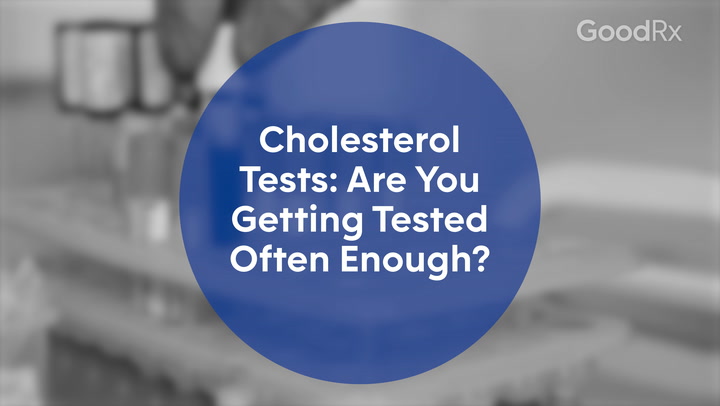
What Can a Smartwatch Do for Your Heart Health?
Key takeaways:
Some newer-generation smartwatches can track heart rate and blood pressure.
Except for atrial fibrillation (available in some models), smartwatches can't diagnose serious heart problems, like heart attack, stroke, or heart failure.
A smartwatch is not necessarily a must-have accessory for heart health. Before making the investment, talk to a healthcare professional about how a wearable may help you.
Smartwatches keep track of your schedule, location, and activities. But can they also keep tabs on your heart health?
More smartwatches feature heart-tracking capabilities, and Americans are taking advantage. According to Pew Research Center, 1 in 5 Americans uses a smartwatch or wearable fitness tracker.
Most smartwatches track heart rate. But newer models with ECG and blood pressure monitoring have led people to wonder if they should splurge on the latest heart tracker.
We’ll explore how smartwatches can help with heart health and what their limitations are.
How do smartwatches work for heart health?
Smartwatches perform their heart monitoring “magic” with photoplethysmography (PPG) technology. Special LED lights and sensors measure the changes in blood flow with each heartbeat. The smartwatch then calculates how many times the heart beats each minute — that’s your heart rate. Researchers are developing similar technology for smartwatches to measure blood pressure.
Normally, the heart contracts in a regular way — meaning roughly the same amount of time passes between each heartbeat. In atrial fibrillation, the heart beats more erratically. Since atrial fibrillation is linked to dangerous blood clots, it’s useful to know how often the heart is in this rhythm. Some smartwatches have special algorithms that can use PPG light technology to detect atrial fibrillation.
Read more like this
Explore these related articles, suggested for readers like you.
Can a smartwatch detect heart problems?
Yes and no. Currently available smartwatches give very limited information about your heart. Capabilities usually depend on the kind of device that you have. Types of information smartwatches can give you about your heart health include:
Heart rate detection: This can include a heart rate calculation (if your heart rate is between 30 and 210 beats per minute), heart rate variability (changes in the time between each heartbeat), and alerts for an abnormally high or low heart rate.
Atrial fibrillation detection: This is the only arrhythmia the FDA has cleared some smartwatches to detect. The watches that can detect atrial fibrillation do this using PPG and a single-lead ECG.
Blood pressure detection: An inflatable cuff built into the watch can measure this. Or the same light-sensor technology (PPG) used to detect heart rate (more on this below) can measure it.
Blood oxygen level: This can give information about how well your heart is circulating blood to the lungs and the rest of the body.
Smartwatches can’t detect serious conditions such as heart attack, heart failure, stroke, and many other heart conditions. That’s why it’s best to check in with your healthcare team if you have symptoms that might be related to your heart, like chest pain, shortness of breath, or palpitations. Do not rely on a wearable for a diagnosis.
Can smartwatches detect atrial fibrillation?
Yes, depending on the model. The Kardia and Apple watches have the most studies showing that they may be fairly accurate for detecting atrial fibrillation. In one study, atrial fibrillation notifications on the Apple Watch matched with atrial fibrillation episodes on a medical-grade heart monitor 84% of the time. In another study, Fitbit devices correctly identified atrial fibrillation episodes over 98% of the time.
But does it matter? What effect does this detection have on overall health? There’s some evidence that smartwatch atrial fibrillation detection could help save on healthcare costs. A study that simulated a group of 30 million people over the age of 65 found that wrist devices were more cost effective than the traditional atrial fibrillation detection methods (12-lead ECGs and pulse measurements).
Smartwatch detection of atrial fibrillation was also associated with a reduction of stroke — but an increase in bleeding events (due to the use of blood thinner medications).
Things are changing fast though: The Kardia model (Kardia band) is no longer being sold. But Fitbit recently came to market with their newest in atrial fibrillation smartwatch technology.
Are smartwatches good for blood pressure issues?
Smartwatch blood pressure detection is a work in progress. The Omron Heartguide is the only smartwatch that’s FDA cleared for blood pressure monitoring. It uses an inflatable cuff within the watchband, similar to the blood pressure cuffs in medical offices.
Other smartwatch companies are developing the photoplethysmography technology already used for heart rate measurements. This would be even easier and more comfortable than the inflatable cuff models currently available. Companies like Valencell and Fitbit are still validating this technology, so it’s not quite ready.
When it comes to monitoring blood pressure, the most accurate measurements are made with a more traditional automatic arm cuff, either at home or in a provider’s office.
What is the best smartwatch for heart health?
Many smartwatches have heart functions now. The make and model of smartwatch you choose — and whether you choose to buy one at all — is a personal decision. Think about what you want it for, and then whether the cost, convenience, additional features, and aesthetics are worth the expense. But remember, no smartwatch can take the place of regular monitoring and checkups with your healthcare team.
Here are some of the smartwatch brands with models featuring heart functions:
Apple: heart rate detection, atrial fibrillation detection, blood oxygen detection
Fitbit: heart rate detection, atrial fibrillation detection, blood oxygen detection
Samsung: heart rate detection, atrial fibrillation detection, blood oxygen detection
Google: heart rate detection, atrial fibrillation detection
Omron: heart rate detection, blood pressure detection
Garmin: heart rate detection, blood oxygen detection
Withings: heart rate detection
What are the biggest limitations of smartwatches for heart issues?
Smartwatches are limited in what they can measure and detect. They’re not equipped to take the place of a healthcare professional, or even a full, 12-lead electrocardiogram in a healthcare provider’s office.
Here are some other limitations of smartwatches for monitoring heart conditions:
Artifact: This is “noise” in the signals the watches can detect and report on. It can lead to a false reading. In turn, this can cause unnecessary anxiety.
Lower accuracy for heart rate detection in people with darker skin: A recent review found that the light detection methods used by smartwatches may not work as well in people who have more pigment in their skin.
Privacy and security concerns: No one wants their private health information taken without their knowledge. Yet that’s the unfortunate reality of storing your heart data in smartwatches. Here are some tips on how to protect your health information when using a mobile device.
Unclear role in your care: In other words, is the information the smartwatch gathers going to improve your care? The answer to that is still unknown. But ongoing studies aim to find out how the information can best help people.
Can a smartwatch save your life?
It’s possible. But not for the reasons you might think. There are several documented cases of smartwatches saving lives, especially because of the fall detect and SOS calling features. These can alert emergency personnel if you take a sudden spill.
There are also some stories of people who sought medical care due to the heart information they got from a smartwatch. But, as we’ve discussed, smartwatches are extremely limited in detecting serious heart problems. For example, a smartwatch can’t tell you if you’re having a heart attack or stroke.
Remember that a smartwatch is no substitute for seeing your provider regularly, eating well, and keeping active to reduce your risk of heart disease.
Should you invest in a smartwatch for your heart health?
Some studies show that smartwatches inspire people to get physical. But is the investment worth it to monitor heart health? It depends on several factors, including:
Your symptoms: If you feel perfectly fine, you might want to think twice about a smartwatch for your heart. According to the U.S. Preventive Services Task Force, ECG monitoring is not recommended for adults who don’t have heart symptoms because it could lead to unnecessary testing and anxiety.
Your heart history: If you’ve never had a heart issue, there’s likely no reason to get a smartwatch just for heart-health monitoring. That’s because there’s a low chance the watch will find a problem.
Age: The younger you are, the lower the chance of finding a heart problem. In a study that looked at detecting atrial fibrillation with smartwatches, people younger than 55 years old had irregular heartbeat notifications less than 1% of the time.
Cost: Smartwatches are typically expensive. Most range between $200 to $400. But some models run as high as $500. So, if your only goal is to improve your heart health, a gym membership or healthier food might be a better way to spend your money.
Why might a cardiologist recommend a smartwatch?
Smartwatches are not yet considered clinical-grade tools for diagnosing heart problems. So most cardiologists probably wouldn’t recommend a smartwatch for heart monitoring.
One exception is if you have atrial fibrillation. In this situation, a smartwatch might be helpful to monitor how often this heart rhythm is happening — and at what heart rate. This could help you and your provider better manage your medications for the condition.
Ask your provider if they recommend a smartwatch for you. And remember, even if you buy a smartwatch, it’s impossible for your healthcare team to monitor your results 24/7. Before you start monitoring, it’s best to establish a plan for how you can best communicate your watch findings with your provider.
The bottom line
Smartwatches can now monitor heart health — but in limited ways. They can’t detect life-threatening issues such as heart attack, heart failure, and stroke.
So smartwatches aren’t necessarily a must-have accessory for heart health. And don’t count on one to save your life. If you’re thinking about investing in a smartwatch to monitor your heart, talk with your healthcare provider about what you’re hoping to get from it before you splurge on a wearable device.
Why trust our experts?


References
Al-Alusi, M. A., et al. (2019). Wearing your heart on your sleeve: The future of cardiac rhythm monitoring. Current Cardiology Reports.
AliveCor, Inc. (n.d.).KardiaBand.
Allen, J. (2007). Photoplethysmography and its application in clinical physiological measurement. Physiological Measurement.
American College of Cardiology. (2022). How accurate is smartwatch heart-data? It depends on your skin tone.
American Heart Association. (2016). What is atrial fibrillation (AFib or AF)?
American Heart Association. (2020). How to accurately measure blood pressure at home.
Apple Inc. (n.d.).Watch.
Apple Inc. (2022). Monitor your heart rate with Apple Watch.
Casilari, E., et al. (2015). Automatic fall detection system based on the combined use of a smartphone and a smartwatch. PLOS One.
Chen, W., et al. (2022). Cost-effectiveness of screening for atrial fibrillation using wearable devices. JAMA Health Forum.
ClinicalTrials.gov. (n.d.). Search: Smartwatch & heart.
Elgendi, M., et al. (2019). The use of photoplethysmography for assessing hypertension. npj Digital Medicine.
Epstein, R. H. (2021). Can a smartwatch save your life?. The New York Times.
Fitbit. (n.d.). Irregular rhythm.
FitBit. (n.d.).Smartwatches.
Fox 11 Los Angeles. (2022). Apple Watch saves unconscious man by calling 911 after he fell off electric bike.
Frazier, M. (2022). The best smartwatch sales and deals for February 2023. Techradar.
Garmin Ltd. (n.d.). Vívosmart® 4.
Google. (n.d.). Google Pixel Watch.
Google. (2022). Fitbit ECG app instructions for use.
Hackett, M. (2021).Fitbit begins smartwatch blood pressure tracking study. MobiHealthNews.
Halcox, J. P. J., et al. (2017). Assessment of remote heart rhythm sampling using the AliveCor heart monitor to screen for atrial fibrillation: The REHEARSE-AF study. Circulation.
HealthIT.gov. (2019). How can you protect and secure health information when using a mobile device?.
Healy, N. (2021).Will wearables ever accurately measure blood pressure?. Medical Device Network.
Isakadze, N., et al. (2020).How useful is the smartwatch ECG?. Trends in Cardiovascular Medicine.
LeBoeuf, S. F., et al. (2021). Reflection-mode photoplethysmography finger sensors enable accurate tracking of blood pressure trends in smartphones without requiring a user calibration. Valencell, Inc.
Lubitz, S. A., et al. (2022). Detection of atrial fibrillation in a large population using wearable devices: The Fitbit heart study. Circulation.
MedlinePlus. (2020).Electrocardiogram.
Muoio, D. (2019). AliveCor ends sales of KardiaBand, its ECG accessory for Apple Watches. MobiHealthNews.
Omron Healthcare, Inc. (n.d.). HeartGuide™.
Perez, M. V., et al. (2019). Large-scale assessment of a smartwatch to identify atrial fibrillation. The New England Journal of Medicine.
Roerecke, M., et al. (2019). Comparing automated office blood pressure readings with other methods of blood pressure measurement for identifying patients with possible hypertension: A systematic review and meta-analysis. JAMA Internal Medicine.
Samsung. (2022). Samsung health monitor.
Tison, G. H., et al. (2018). Passive detection of atrial fibrillation using a commercially available smartwatch. JAMA Cardiology.
U.S. Preventive Services Task Force. (2018). Cardiovascular disease risk: Screening with electrocardiography.
Valencell, Inc. (n.d.). Home.
Vogels, E. A. (2020).About one-in-five Americans use a smart watch or fitness tracker. Pew Research Center.
Withings. (n.d.). Watches.
Yen, H. Y., et al. (2021). Comparisons of physical activity and sedentary behavior between owners and non-owners of commercial wearable devices. Perspectives in Public Health.





























